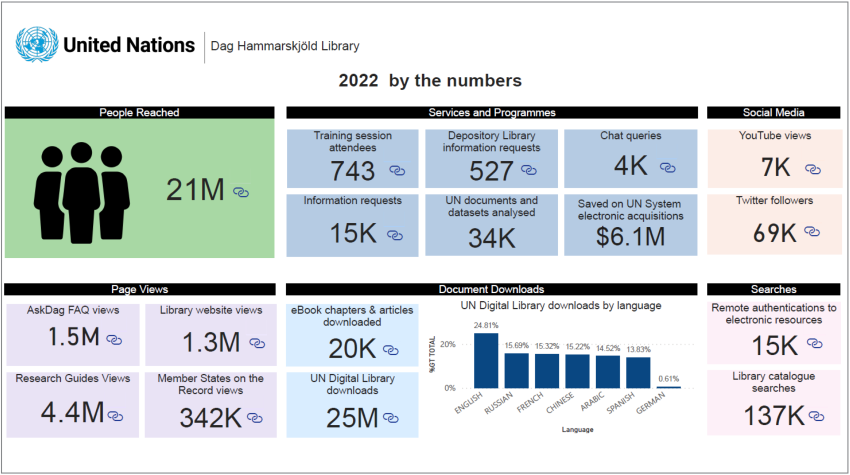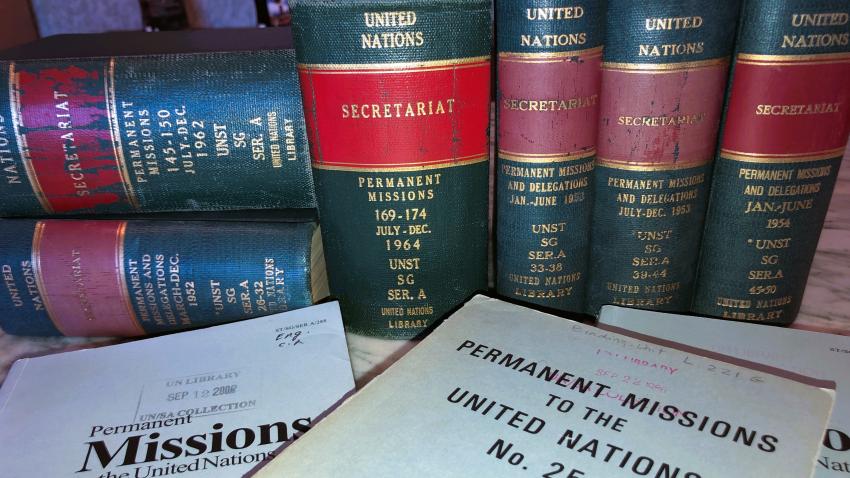In 2022, the United Nations Dag Hammarskjöld Library stayed true to its mission of providing credible information, data, and human knowledge to Member State delegations, UN staff, researchers, and citizens of the world. After two years of primarily remote working conditions, we were finally able to reopen our reading rooms to clients. However, we maintained a hybrid mode in all our services, trainings, and events to cater to the diverse information needs of our internal and external audiences. This contributed to a substantial increase in the number of people we reached throughout the year.
Our website and other information resources – the FAQ database Ask DAG, the Research Guides and the newly revamped service “Member States on the Record” – saw increased online traffic. The popularity of our hybrid events attracted new audiences to our UN knowledge ecosystem. The UN Digital Library solidified its position as a major global source of reference about UN deliberations by recording over 25 million document downloads from 10,000 locations worldwide, excluding automated or machine-initiated transactions. This success can be attributed to the structured nature of our metadata, which generations of UN librarians have been curating since 1946 – from printed indexes, checklists and card catalogues to today’s web-based databases. Metadata.un.org, our linked data service, incorporating the CEB-approved SDGs taxonomy, was viewed over 12 million times by human users and online systems.
In 2022, we undertook substantive foundational work that led to the creation of a digital metadata editor essential for making digital documents and our metadata even more widely accessible. We will officially launch this fully digital workflow in 2023 to be used by the UN Libraries in New York and Geneva.
Overall, 2022 saw the expansion of the Dag Hammarskjöld Library’s global reach through innovative and hybrid information services and products. We creatively collaborated with UN and research communities worldwide and were rewarded with meaningful and strong new partnerships. We took on the greater challenges that modern digital information management is facing and continued to raise awareness for Open Science and its leading role in advancing scientific knowledge and countering rampant online misinformation and disinformation across all disciplines.




